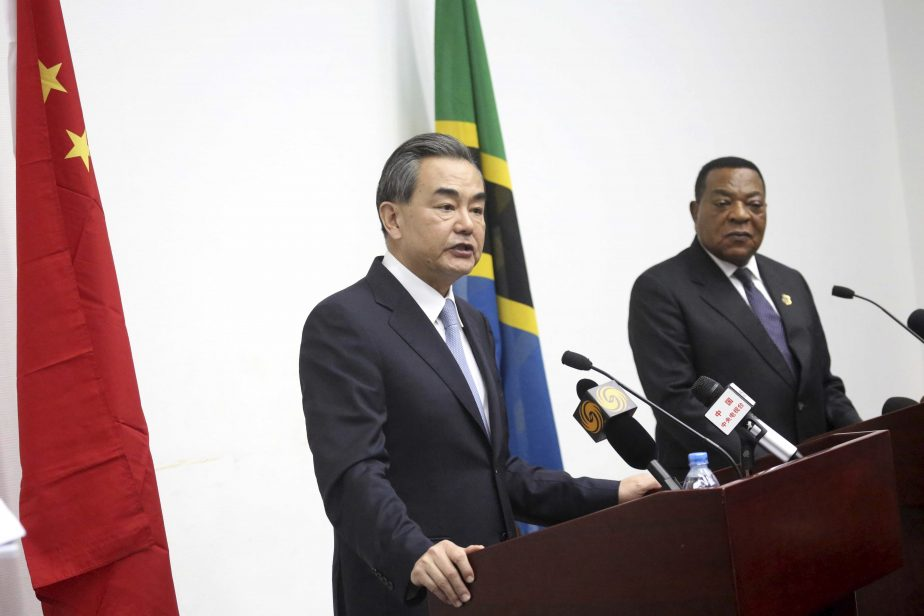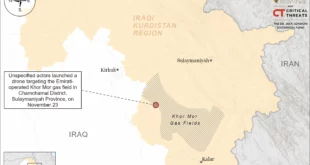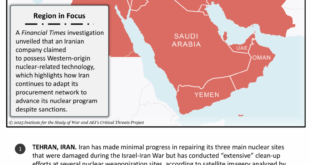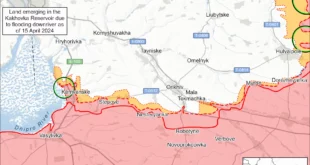
Wang Yi’s visit added two new partners for the BRI, among other agreements.
Over the weekend, Chinese Foreign Minister Wang Yi concluded his tour to five countries in Africa, upholding a 30-plus year tradition of China’s top diplomat starting the new year with the first international visit to the continent. The trip brought Wang to a disparate group of destinations: Nigeria, the Democratic Republic of the Congo, Botswana, Tanzania, and Seychelles.
The thrust of the tour was messaging to emphasize the positive trajectory and future of ties between China and its African partners, particularly in the lead-up to the triennial Forum on China-Africa Cooperation (FOCAC) leaders’ summit to be held this year. Wang laid out a seven-point plan to upgrade China-Africa cooperation for 2021, bolstering health, agricultural, digital, environmental, and military and security cooperation; regional connectivity and free trade; and Africa’s industrial capacity.
Wang’s five-country tour was not wanting for deals to tout either. The DRC and Botswana became the 45th and 46th African signatories to join China’s ambitious Belt and Road Initiative (BRI). (Nigeria joined the BRI in 2019 and Seychelles in 2018.) Although the spread of the coronavirus raised questions about the future of the BRI, resistance to it and Chinese efforts to recalibrate the initiative manifested long before the pandemic.
New members signing onto BRI will likely inject some new energy into an initiative whose projects have stagnated and faced controversy, causing its overall luster to fade. The new MOUs also provided Beijing with an opportunity to signal its continued willingness to back infrastructure development across the continent.
During Wang’s time in Tanzania, the two sides announced that two Chinese firms, China Civil Engineering Construction and China Railway Construction, had won a $1.3 billion contract to construct a railway linking the Lake Victoria port city of Mwanza to Isaka, which connects to the seaport of Dar es Salaam. The news may be a boon for other infrastructure deals, especially in Tanzania, where a number of Chinese projects were scrapped over debt burden and corruption concerns.
Elsewhere, in Nigeria, Wang articulated intentions to establish an intergovernmental committee to facilitate bilateral cooperation between the two strategic partners. The visit was also likely designed to smooth ties after anti-Chinese sentiment in Nigeria grew more vocal following reports of Africans being targeted for COVID-19 testing and forced quarantines in Guangzhou.
Later this month, the Lagos-Ibadan railway is set to launch, a train route connecting the country’s economic hub to the most populous city of Oyo state. The project received sizable Chinese financing and China Civil Engineering Construction Cooperation was the contractor. Following Wang’s visit Nigeria’s transportation minister said it was waiting on Chinese approval for a new $5.3 billion loan to construct the Ibadan-Kano railway.
In Kinshasa, Wang announced the cancellation of $28 million of the DRC’s interest-free loans. African countries’ debt levels, to China and otherwise, became a major point of concern amid the financial turmoil caused by COVID-19. While Beijing has written off debt to other African borrowers, concerns are likely to remain over the transparency and conditions of Chinese loans. Wang also said Beijing would give $17 million to the DRC, $15 million of which will be dedicated to development projects and another $2 million to support Kinshasa’s role as head of the African Union in the next financial year.
Wang’s final stop to Seychelles came as the two countries are set to celebrate 45 years of diplomatic ties. The two sides voiced a willingness to enhance their cooperation including in environmental protection, blue economy tourism, and clean energy.
Wang’s visit also coincided with the long anticipated publication of a white paper from the State Council Information Office on China’s international development cooperation. Over a five year period from 2013 to 2018, China extended assistance to 53 countries in Africa – its top destination – accounting for nearly 45 percent of total foreign aid.
And while Wang framed the growth of African membership in the Belt and Road Initiative as demonstrative of China’s role in “steering a new era of globalization,” he also stated that supporting development on the continent was a shared responsibility. “It is a firm belief of China that Africa is not an arena for superpower games but a major stage for international cooperation,” Wang said.
“In pure propaganda terms, Wang’s Africa Tour 2021 was a huge success. But don’t be fooled by those sparkling headlines,” writes The China-Africa Project’s Eric Olander. “Even though Wang didn’t talk in any substantive way about Chinese debt restructuring, over-fishing, the status of race relations in Guangzhou, or any of the other important, yet highly contentious issues in the China-Africa relationship doesn’t mean they’ve gone away,” he added.
Still, 2021 will prove to be an important year for China-Africa relations as Senegal prepares to host this year’s FOCAC summit. Moreover, Chinese vaccine distribution efforts will also be active in Africa in the coming months. Seychelles, an Indian Ocean archipelago, started inoculating its population with 50,000 doses of the China-developed Sinopharm COVID-19 vaccine, which it received as a donation from the United Arab Emirates. India also offered 100,000 doses of the Oxford AstraZeneca vaccine to the country, set to arrive by late January.
As many countries seek access to COVID-19 vaccines to stabilize and recover after the challenges of the pandemic, some have characterized China’s vaccine diplomacy as “high-risk, high reward.” “If SinoPharm’s vaccine restores a sense of normalcy to life across Africa, China will be praised. However, if the vaccine proves ineffective or creates unforeseen health effects, China’s carefully crafted image — one based on ideals of credibility and philanthropy — could be undermined,” writes Neil Edwards, an open source African media analyst at Novetta.
 Eurasia Press & News
Eurasia Press & News


